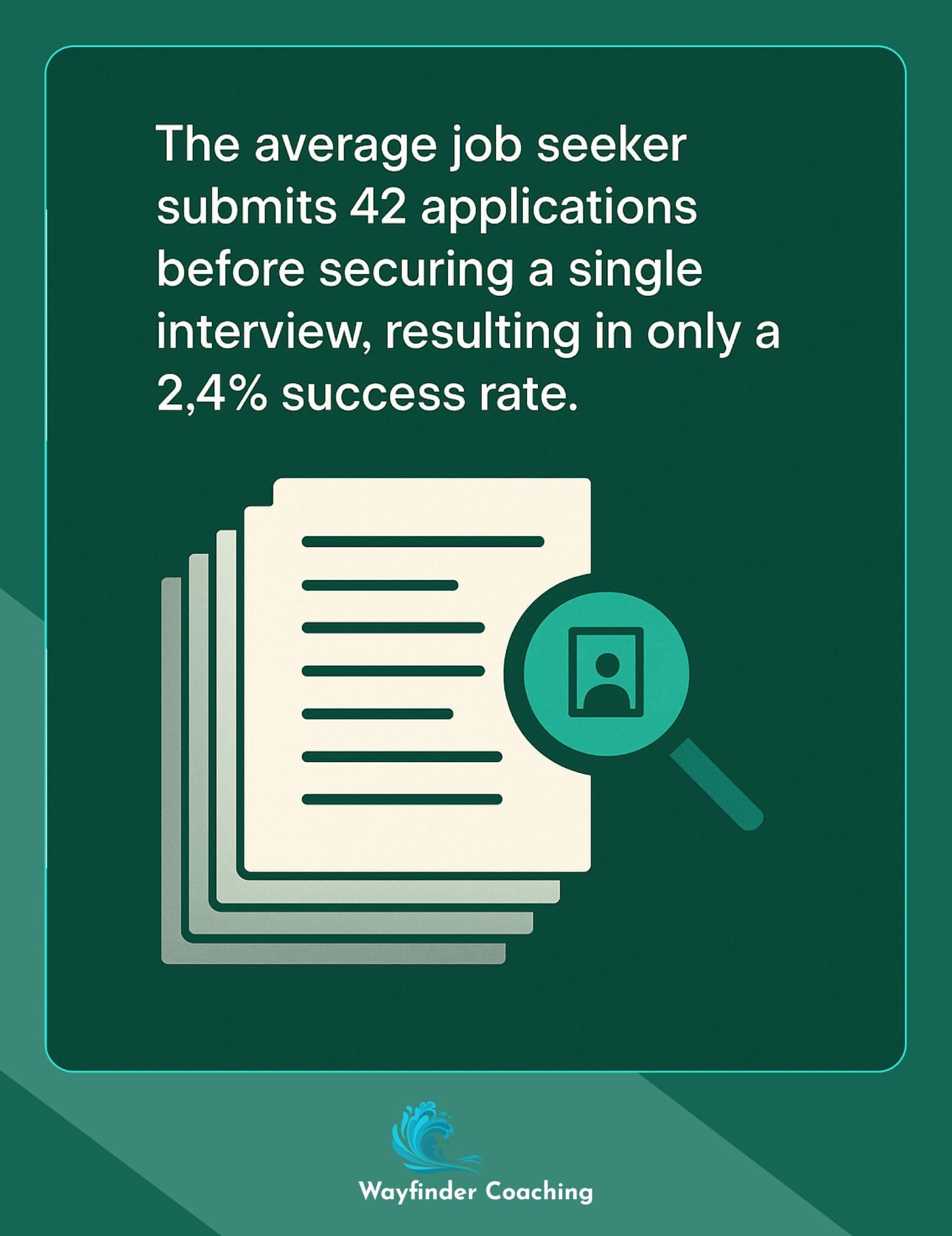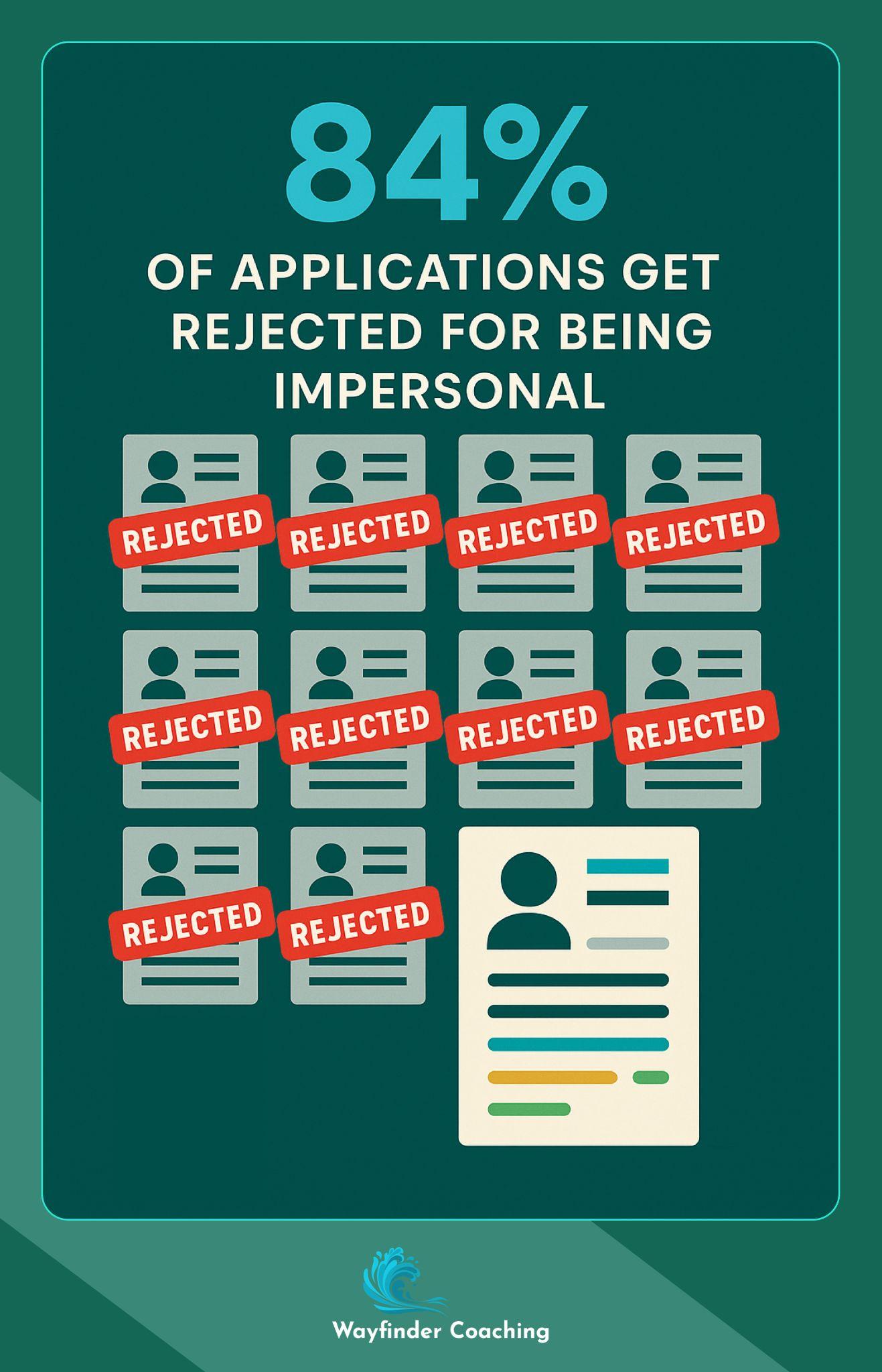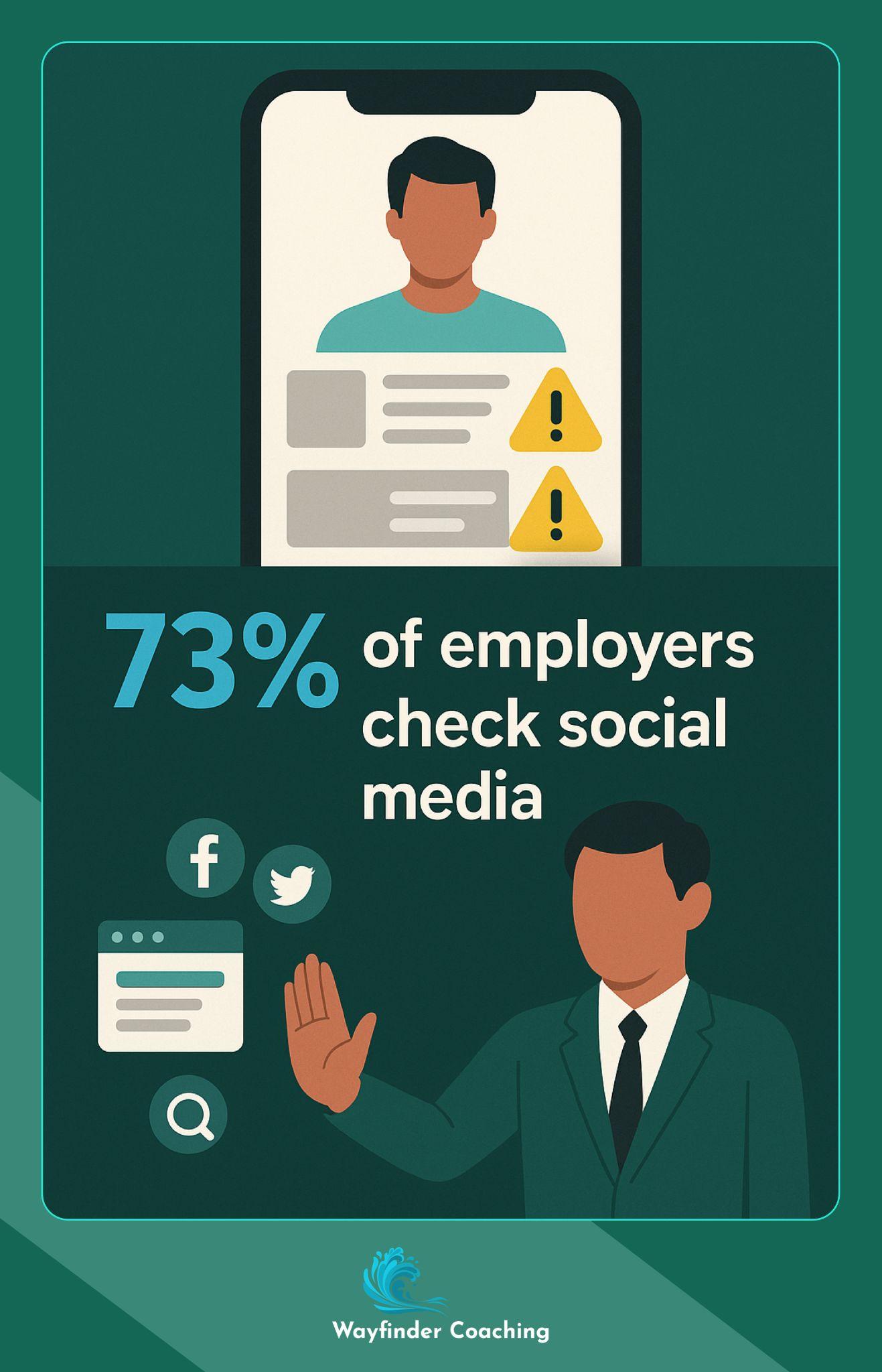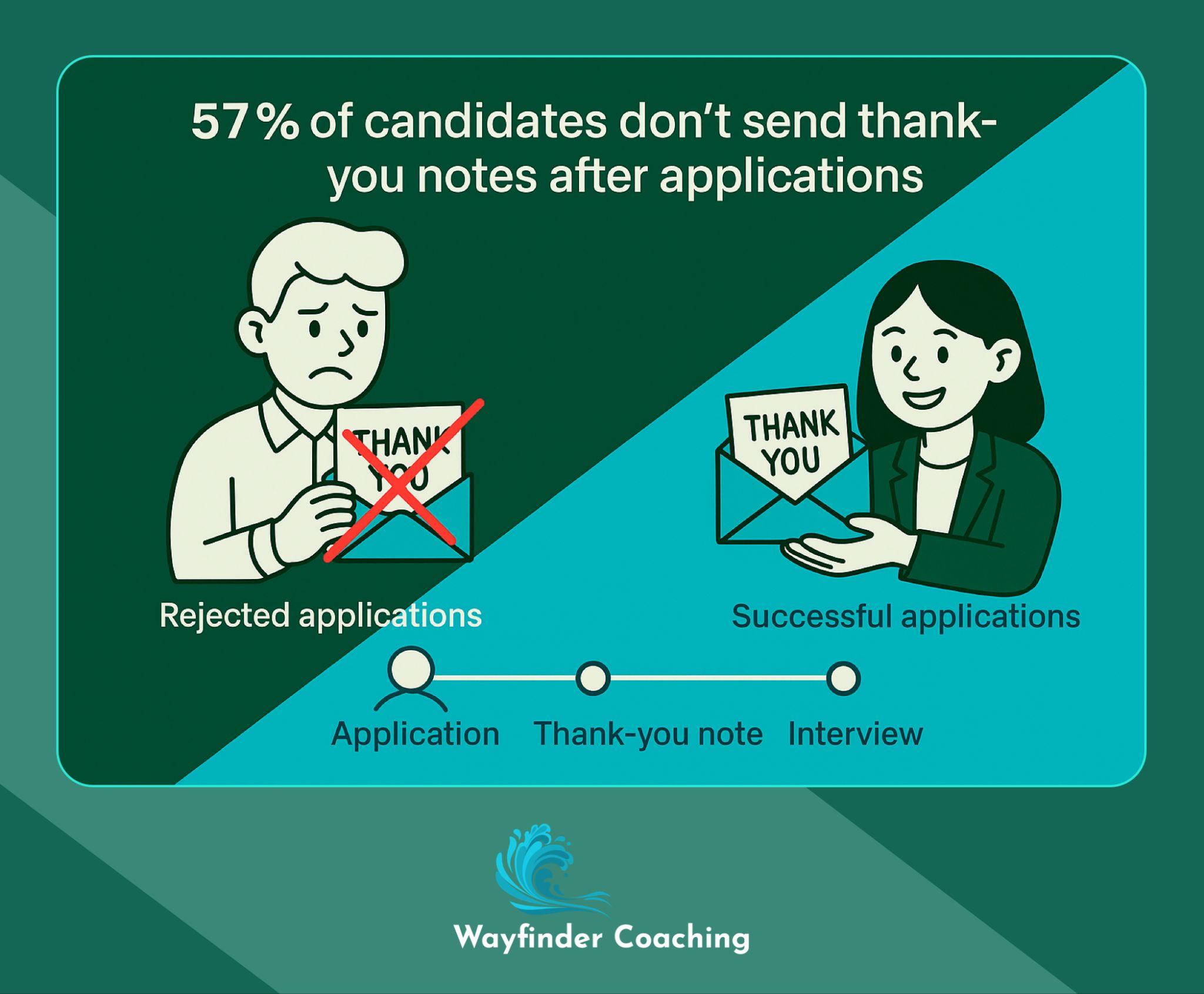What Research Will Help Prepare You Before You Apply for a Job? A Step-by-Step Guide
The job search process can feel like a numbers game. The average job seeker submits 42 applications before securing a single interview, resulting in only a 2.4% success rate. (Source: CareerPlug) With such challenging odds, proper preparation becomes essential, not optional. The difference between successful job seekers and those who struggle often comes down to one factor: research.

This guide explores the research areas that can dramatically improve your job application success rate. By thoroughly investigating companies, roles, industries, and market conditions before applying, you position yourself as an informed, prepared candidate who stands out in a crowded field. Let’s explore the specific research steps that will help you prepare effectively for your next job application.
Understanding Today’s Job Application Landscape
The modern job market presents both challenges and opportunities. Competition is fierce across most industries. Each open position attracts dozens or even hundreds of qualified candidates. This competitive environment means generic applications rarely succeed.

If you're struggling to land interviews, even with great experience, there’s a smarter way. Book a free DFY strategy call and let us help you skip job boards and connect directly with hiring managers.
Most job seekers focus on quantity over quality. They submit numerous standardized applications hoping one will generate interest. This approach explains why 84% of applications get rejected for being impersonal. (Source: CareerPlug) Strategic research before applying helps you create tailored, compelling applications that address specific employer needs.
Let’s examine the key factors that influence application success rates in today’s job market:
| Factor | Impact on Success | Research Importance |
|---|---|---|
| Application Customization | 54% of applications rejected for lack of customization (Source: CareerPlug) | Critical – Enables tailoring to specific requirements |
| Interview Preparation | 70% of hiring managers cite unpreparedness as a top mistake (Source: CareerPlug) | High – Builds confidence and demonstrates interest |
| Social Media Presence | 73% of employers reject candidates due to online content (Source: World Economic Forum) | High – Significantly impacts employer perception |
| Follow-up Communication | 57% of applications rejected due to no thank-you note (Source: CareerPlug) | Medium – Shows professionalism and continued interest |
| Salary Knowledge | 38% of job seekers avoid roles without salary information (Source: CareerPlug) | Medium – Ensures alignment with expectations |
This table highlights how crucial research is before you even begin the application process. Understanding these factors helps you allocate your preparation time effectively.
Company Research: The Foundation of Successful Applications
Thorough company research forms the backbone of any successful job application. When you understand an organization’s values, challenges, and goals, you can position yourself as the solution they need. This knowledge allows you to speak their language and demonstrate genuine interest in their specific business.
I believe that candidates who take time to research a company thoroughly show commitment that hiring managers notice immediately. This approach aligns perfectly with the data-driven job search strategy that produces results. Too many candidates skip this crucial step, focusing solely on their own qualifications without considering the employer’s perspective.
What specific company elements should you research? Focus on these key areas:
| Research Area | What to Look For | Where to Find It |
|---|---|---|
| Company Mission & Values | Core purpose, ethical principles, priorities | Company website, annual reports, social media |
| Recent News & Developments | Mergers, product launches, leadership changes | News articles, press releases, company blog |
| Financial Health | Growth trajectory, funding status, market position | Annual reports, business news, industry analyses |
| Culture & Work Environment | Employee testimonials, work style, benefits | Glassdoor reviews, LinkedIn employees, social media |
| Leadership Team | Backgrounds, communication styles, priorities | Company website, LinkedIn, interviews, news articles |
This structured research approach helps you identify organization-specific talking points for your cover letter, resume customization, and interview preparation. Thorough company knowledge also builds confidence when interacting with hiring teams.
Always document your findings in an organized way. Create a simple research document for each company you’re targeting. This preparation makes crafting personalized applications much easier and more effective.
Role-Specific Research: Aligning Your Skills with Job Requirements
Understanding the exact requirements for each position you apply to is crucial. Generic applications that don’t address specific job needs explain why 54% of resumes are rejected due to lack of customization. (Source: CareerPlug)
Role research begins with a thorough analysis of the job description. Read between the lines to understand what problems the employer is trying to solve with this hire. The listed requirements tell you what skills to emphasize in your application.
When analyzing job descriptions, focus on these key elements:
- Required skills vs. preferred skills – Identify which qualifications are mandatory
- Technical requirements – Note specific tools, software, or methodologies mentioned
- Soft skills emphasis – Look for mentions of communication, teamwork, or leadership
- Experience level indicators – Determine if the role truly matches your career stage
- Key responsibilities – Identify the primary tasks and outcomes expected
Beyond the official job description, research similar roles at other companies. This broader perspective helps you understand industry standards and expectations. Check professional forums, LinkedIn job posts, and industry-specific job boards to gather additional insights about typical requirements.
You Need Interviews to Get Job Offers
Our Done-For-You system gets you in front of hiring managers fast: no more resume black holes, job board spam, or wondering what happened after you apply.
Book Your Free DFY Strategy CallMany job seekers focus solely on traditional application methods, missing opportunities for direct outreach. Understanding the specific role requirements allows you to craft targeted messages that highlight exactly how your background matches what hiring managers need.
Industry and Market Research: Gaining Competitive Context
Industry knowledge provides crucial context for your job applications. Understanding sector trends, challenges, and opportunities helps you speak the language of potential employers. This knowledge demonstrates your professional engagement and foresight.
Start by researching the broader industry landscape. Identify market growth areas, emerging technologies, and regulatory changes that might impact your target companies. This information helps you frame your skills and experience in terms of current industry needs.
Competitive analysis also proves valuable. Investigate your target company’s main competitors to understand:
| Research Component | Questions to Answer | Impact on Application |
|---|---|---|
| Market Position | How does your target company compare to competitors? | Helps position your skills to address competitive challenges |
| Industry Trends | What changes are affecting the sector? | Allows you to highlight forward-looking skills |
| Regulatory Environment | What rules or compliance issues exist? | Demonstrates awareness of industry constraints |
| Technology Adoption | What innovations are changing the field? | Helps emphasize relevant technical capabilities |
| Talent Landscape | What skills are in highest demand? | Guides which qualifications to emphasize |
This contextual knowledge helps you customize your application in ways that speak directly to the company’s competitive position. For example, if your research reveals the organization is lagging in a specific technology, you can emphasize your experience with that system.
Industry research also prepares you for intelligent conversation during interviews. The ability to discuss sector-specific challenges convincingly demonstrates your professional depth. According to employment data, industries continue to evolve rapidly, making current knowledge increasingly valuable. (Source: Bureau of Labor Statistics)
Salary and Compensation Research: Knowing Your Worth
Compensation research is a critical but often overlooked aspect of job preparation. This knowledge prevents you from undervaluing your skills or pricing yourself out of consideration. With 38% of job seekers avoiding roles that lack salary information, transparent compensation data clearly matters to candidates. (Source: CareerPlug)
Effective salary research involves consulting multiple sources to establish realistic expectations for your target role, industry, and location. Let’s explore the most reliable resources:
| Resource | Type of Data Provided | Best Used For |
|---|---|---|
| Glassdoor | Company-specific salary ranges | Understanding compensation at target companies |
| PayScale | Personalized salary reports based on experience | Getting specific estimates for your background |
| Bureau of Labor Statistics | Comprehensive industry and regional data | Verifying broader market trends and standards |
| Professional Associations | Industry-specific compensation surveys | Getting specialized information for niche roles |
| Recruitment Firms | Current hiring trends and negotiation ranges | Understanding real-time market conditions |
When researching salaries, remember that numerous factors affect compensation, including company size, location, industry, and individual experience. Cross-reference multiple sources to establish a realistic range rather than fixating on a specific number.
This information arms you for potential salary discussions. Being prepared with market-based figures demonstrates professionalism and helps ensure you’re valued appropriately. It also prevents the uncomfortable situation of requesting a salary far outside the company’s range, which can immediately disqualify you.
As employment patterns continue to evolve, staying current on compensation trends becomes increasingly important. Regular reviews of industry salary data help ensure your expectations remain aligned with market realities. (Source: Bureau of Labor Statistics Employment Report)
Social Media and Online Presence Research: Crafting Your Digital Brand
Your digital presence plays a crucial role in modern job seeking. A striking 81% of job seekers now use social media platforms during their job search. (Source: World Economic Forum) This trend is matched by employer behavior, with 95% of recruiters using social platforms to find and evaluate candidates. (Source: World Economic Forum)

Before applying for jobs, conduct thorough research on your own online presence. What will employers find when they search for you? The answer matters significantly, as 73% of employers report rejecting applicants based on inappropriate online content. (Source: World Economic Forum)
Start by auditing your social profiles across these key platforms:
- LinkedIn – The primary professional networking platform
- Twitter/X – Often reviewed for professional opinions and engagement
- Facebook – Frequently checked for personal character indicators
- Instagram – Increasingly relevant for certain industries
- Industry-specific platforms – Relevant forums or communities in your field
Beyond cleaning up potentially problematic content, use this research phase to strengthen your professional brand. Identify industry leaders and influencers to follow. Join relevant professional groups. Share thoughtful content related to your field. These actions build your digital presence in ways that appeal to potential employers.
Research also extends to the companies’ social media profiles. Following target employers on various platforms provides insight into their culture, values, and current initiatives. This information helps you craft applications that speak directly to their specific organizational context and priorities.
Understanding strategic job search approaches can dramatically improve your results. A well-crafted online presence is increasingly becoming a mandatory component of successful job seeking strategies.
Application Strategy Research: How to Stand Out
Developing a strategic approach to applications helps you stand out in a competitive job market. Research-backed application techniques boost your chances of success significantly. Optimized job applications attract three times more employer interest than generic submissions. (Source: World Economic Forum)
Effective application strategy research focuses on understanding what makes applications successful for specific organizations. This includes studying application processes, format preferences, and evaluation criteria. Let’s examine key differentiation techniques:
Real Clients. Real Interviews.
“I was stuck for months. Andrew’s team booked me 7 interviews in 3 weeks, without me touching a job board.”
— Former Sr. Producer, now hired at a Series A startup
Let’s Talk About Your Job Search- Keyword optimization – Researching and including terms from job descriptions
- Achievement quantification – Adding specific metrics to demonstrate impact
- Visual customization – Adapting resume design to match company branding
- Direct outreach strategies – Finding appropriate contacts beyond application systems
- Follow-up protocols – Researching appropriate timing and methods

One often-overlooked research area is follow-up communication. Thank-you notes significantly impact hiring decisions, with 80% of hiring managers saying these messages influence their choices. (Source: CareerPlug) Yet 57% of applicants don’t send them, creating an easy opportunity to distinguish yourself. (Source: CareerPlug)
How can you address gaps in your work history effectively? is a common concern for many job seekers. I advocate for transparency rather than concealment. The job market has experienced unprecedented volatility since the beginning of COVID, making employment gaps increasingly common. Research shows that addressing these periods honestly while highlighting productive activities during them resonates better with hiring managers than attempting to hide them.
The Hiring Manager’s Perspective: What They’re Looking For
Understanding how hiring managers evaluate candidates provides crucial insight for application preparation. Their perspective helps you emphasize information they value most. This section explores common evaluation criteria and application pitfalls.
Hiring managers consistently cite certain factors as most important in their evaluation process. By researching these priorities, you can craft applications that address their specific concerns:
| Priority Area | What Managers Look For | Application Strategy |
|---|---|---|
| Evidence of Preparation | Company knowledge, role-specific research | Include company-specific references in cover letter |
| Problem-Solving Ability | Examples of overcoming challenges | Highlight specific challenges addressed in previous roles |
| Cultural Fit | Values alignment, communication style | Research and address company culture explicitly |
| Long-term Potential | Growth mindset, adaptability | Emphasize learning experiences and skill development |
| Genuine Interest | Enthusiasm, thoughtful questions | Demonstrate passion for the specific company and role |
Research reveals that hiring managers often reject candidates for reasons that could be addressed through better preparation. A significant 70% of hiring managers cite unpreparedness as a top interview mistake. (Source: CareerPlug) Additionally, 75% note that excessive nervousness harms performance. (Source: CareerPlug) Both issues can be mitigated through thorough research.
From my experience in talent acquisition across the technology industry, I’ve observed that candidates who demonstrate thorough preparation stand out dramatically. They show commitment that generic applications simply cannot convey. This preparation extends beyond just knowing company facts to understanding the specific business challenges and how their skills provide solutions.
When researching hiring managers directly, look for interviews, articles, or social media content they’ve created. These sources often reveal their specific priorities and values, allowing you to tailor your application accordingly.
Building Your Research System: A Step-by-Step Approach
Creating a systematic research process ensures you gather comprehensive information efficiently. A structured approach helps you maintain consistency across multiple applications while saving time. This section outlines a practical research workflow.
Start by creating a centralized system for recording your findings. This could be a spreadsheet, document, or specialized application. Whatever tool you choose, ensure it allows for easy organization and retrieval of information.
Follow this step-by-step research process for each application:
- Company profile creation – Document basic information, values, and recent news
- Role analysis – Break down requirements, responsibilities, and key skills
- Industry context – Note relevant trends, challenges, and opportunities
- Compensation research – Record salary ranges from multiple sources
- Personal connection identification – Find potential network connections at the target company
For efficient research, learn how to accelerate your job search through targeted research. Focus your efforts on the most impactful information rather than getting lost in details. The goal is actionable insights that can directly improve your application, not simply accumulating facts.
Technology can significantly enhance your research capabilities. Consider using these tools to streamline your process:
| Tool Category | Examples | Best Used For |
|---|---|---|
| Company Research | LinkedIn, Crunchbase, Bloomberg | Understanding organization structure and news |
| Job Aggregators | Indeed, Glassdoor, ZipRecruiter | Comparing similar roles across companies |
| Salary Data | PayScale, Salary.com, Levels.fyi | Gathering compensation information |
| Network Mapping | LinkedIn, Hunter.io, Lusha | Finding connections and contact information |
| News Monitoring | Google Alerts, Feedly, Twitter Lists | Staying current on company developments |
The most effective research approach is consistent but adaptable. Develop a standard process, then customize it based on role requirements and company characteristics. This balanced approach ensures thorough preparation without unnecessary time investment.
Current employment trends highlight the importance of targeted applications over mass submissions. Industry reports show continued growth in specialized roles that demand specific skills and knowledge. (Source: Indeed) This employment landscape rewards candidates who invest in thorough research and targeted applications.
Turning Research Into Action
Thorough research transforms your job application from generic to compelling. The statistics throughout this guide highlight how significantly preparation impacts success rates. From the 42 applications needed on average to secure one interview to the 84% of applications rejected for being impersonal, data consistently shows that customized, well-researched applications stand out. (Source: CareerPlug)
The research process outlined in this guide may seem time-consuming. However, this investment pays dividends through higher response rates and better interview performance. Quality applications to well-researched opportunities yield substantially better results than numerous generic submissions.
Remember that research is ongoing, not a one-time task. Continue gathering information throughout the application and interview process. Each interaction provides new insights that can inform your approach. This dynamic preparation strategy keeps your applications relevant and compelling.
Start implementing these research strategies today to transform your job search. Begin with one target company and follow the step-by-step approach outlined in this guide. Document your findings systematically and use them to craft a highly customized application. This methodical approach will dramatically improve your results over time.
By embracing research as a fundamental part of your job search strategy, you position yourself as an informed, prepared, and committed candidate – exactly the type of professional employers are eager to hire.
We Only Take 5 Clients Per Month
If you're serious about landing 5–10 interviews a month, don’t wait. We run your outreach so you can focus on closing offers.
Book Your Free Strategy Call Now